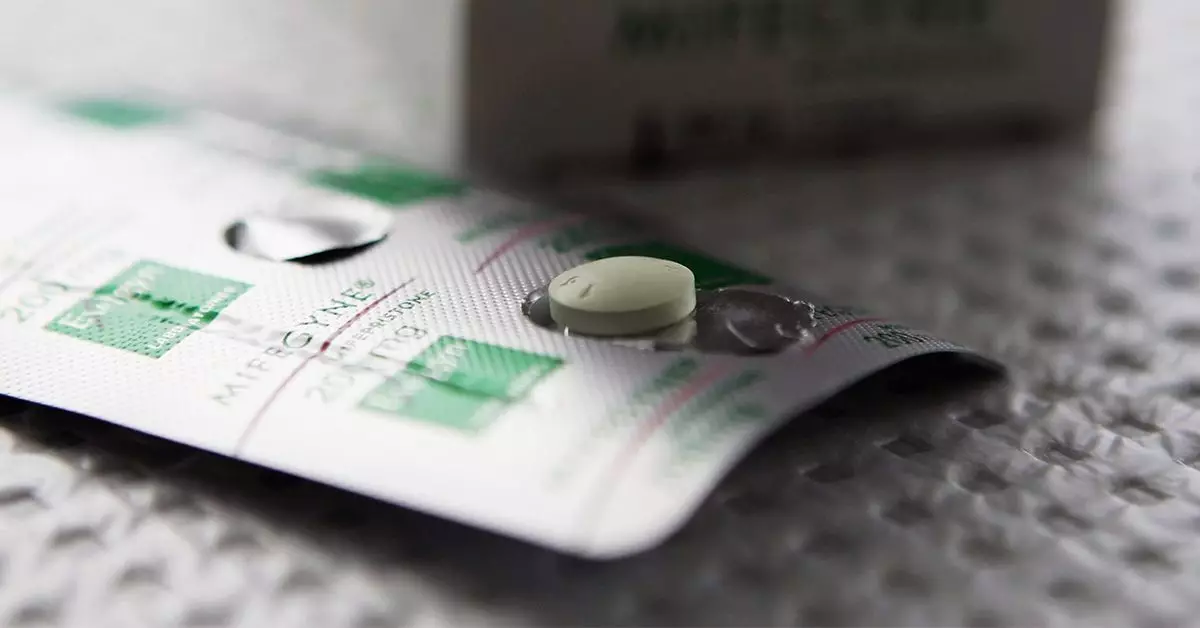Abortion is a topic that evokes strong emotions and diverse opinions. Among the various methods available to terminate a pregnancy, the abortion pill — clinically referred to as a medication abortion — stands out as a non-surgical option. As Healthcare continues to evolve, understanding the mechanisms, effectiveness, and emotional ramifications of this method becomes increasingly essential for individuals facing such difficult decisions.
The abortion pill regimen typically involves two medications: mifepristone and misoprostol. Mifepristone blocks the hormone progesterone, essential for maintaining a pregnancy. By inhibiting this hormone, the uterine lining begins to shed, and the embryo detaches, rendering the pregnancy non-viable. Following mifepristone, misoprostol is administered either immediately or within 48 hours. This second medication induces uterine contractions, facilitating the expulsion of pregnancy tissue. It’s crucial to recognize that this is not a procedure happening in isolation; it combines hormonal manipulation and physical response, which can have various emotional and physical impacts.
Physical signs that indicate the abortion pill has been effective generally include cramping and bleeding, symptoms familiar to many who have experienced heavy menstrual cycles. These cramping sensations commence several hours after taking misoprostol and represent the body’s efforts to expel the pregnancy. Some individuals might also pass blood clots, sometimes leading to confusion about whether the process has completed. Importantly, the symptoms experienced can vary significantly according to the pregnancy’s gestational age. During early stages, the experience might mirror a typical menstrual cycle, making it challenging for some to identify the changes definitively.
In circumstances where a person does not experience bleeding within 24 hours of ingesting mifepristone, or if ongoing nausea and other side effects persist beyond this period, medical guidance should be sought. This introduces an aspect of vigilance and the necessity of follow-up care, which plays a critical role in making sure the procedure is completed safely.
Follow-up consultations with healthcare professionals post-medication abortion are essential for several reasons. They provide an opportunity to confirm that the abortion was successful through blood tests or ultrasounds. Moreover, these consultations facilitate discussions regarding emotional responses, physical well-being, and the necessity for additional doses if the initial regimen was ineffective. Even though the abortion pill is widely recognized for its safety and effectiveness, having open channels for ongoing medical support contributes to a person’s overall health—both physically and psychologically.
The emotional response to undergoing a medication abortion can be as substantial as its physical elements. Individuals may experience a variety of feelings ranging from relief to sadness, guilt, or a mix thereof. Having support systems in place significantly contributes to navigating these emotional landscapes. The recommendation for companionship during the process serves to mitigate feelings of isolation and stress. Despite the accessibility of the abortion pill, the emotional complexity of such a decision cannot be understated, and understanding this aspect promotes an environment where individuals can process their experiences healthily.
Effectiveness rates for the abortion pill remain high but are contingent on several factors, including how early in the pregnancy the drug is taken and adherence to the prescribed regimen. Statistically, studies have indicated that the abortion pill has an impressive success rate, with some reporting over 96% effectiveness for self-managed cases. However, the success rate can drop if the medication is not taken correctly, underlining the importance of strict adherence to medical advice. It is worth noting that studies also highlight significant success rates with misoprostol alone, establishing it as a viable option in specific circumstances, although a healthcare provider’s guidance remains pivotal throughout.
The abortion pill offers a non-invasive alternative for ending early pregnancies and is integral to reproductive healthcare. Its regimen is characterized by a comprehensive understanding that encompasses physical, emotional, and procedural dimensions. The challenges faced during this process are often nuanced, requiring adequate information and robust support systems. By acknowledging the complexities tied to medication abortions, individuals can navigate their choices with increased confidence, underscoring the significance of accurate information and compassionate care in reproductive health.


Leave a Reply